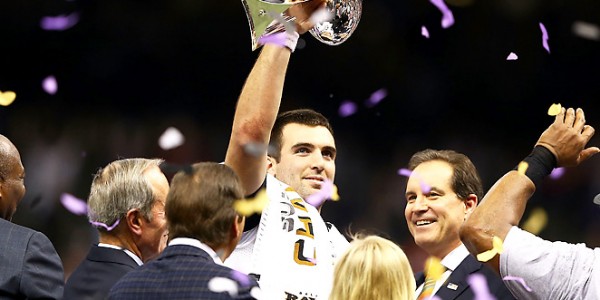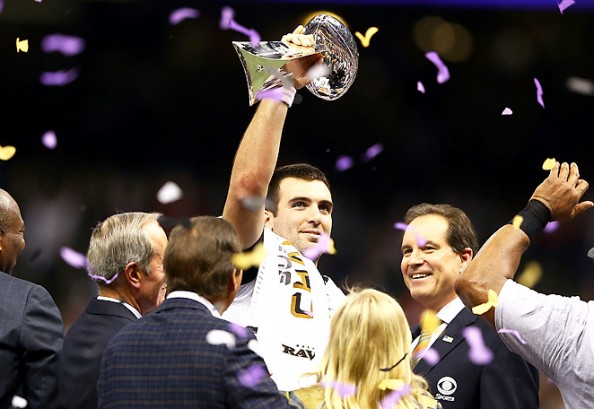There wasn’t much of a choice for the Baltimore Ravens to give in to the demands of Joe Flacco, and make him not just the highest paid quarterback in the NFL, but the best-paid player in the history of the league, immediately turning him into an overpaid player.
While Flacco was the one who took the Ravens to five consecutive playoff performances and eventually winning the Super Bowl, I don’t think a lot of people feel that this is the same case like the Indianapolis Colts had with Peyton Manning, who once removed from the team, the entire deck of cards fell apart. Flacco is important, vital and what not, but the Ravens are much more than a team that is a quarterback and 21 other guys.
Now, based on the $120.6 million deal, he will make an average of $168,908 each day of the regular season for the next six years, or an average of $20.1 million per season. By taking the deal, the Ravens avoid franchising Flacco, which would have meant a cap hit of $19.5 million. The deal helps them avoid the huge cap hit for later years while trying to be a contender in the free agent market, with so many key players coming out of their contracts and needing retaining.
It’s not like Flacco isn’t deserving of a big contract – He tied Tom Brady this past season for most playoff wins by a quarterback in his first five seasons. His 63 wins in the regular season and postseason are the most by a QB in his first five seasons in the Super Bowl era. Flacco is the only quarterback to win a postseason game in each of his first five pro seasons, and also holds the record for playoff road wins with six.
But when you think of who should be the highest player in the league, you usually think of the best quarterback in the NFL. Flacco, with all of his positive qualities that seem to fit the Baltimore Ravens’ system just fine, is not as good as the best quarterbacks in the NFL. It puts more pressure on him than ever before to succeed with a team that most likely won’t be as good and packed as it was last season, with the critics able to point his huge contract as one of the reasons for his possible decline.

